|

|
Think Again:
As stereotypes stick and prejudice deepens, we don’t just identify with our own group; we disidentify with our adversaries, coming to define who we are by what we’re not.
|
124 |
|

|
Think Again:
We don’t just preach the virtues of our side; we find self-worth in prosecuting the vices of our rivals.
|
124 |
|
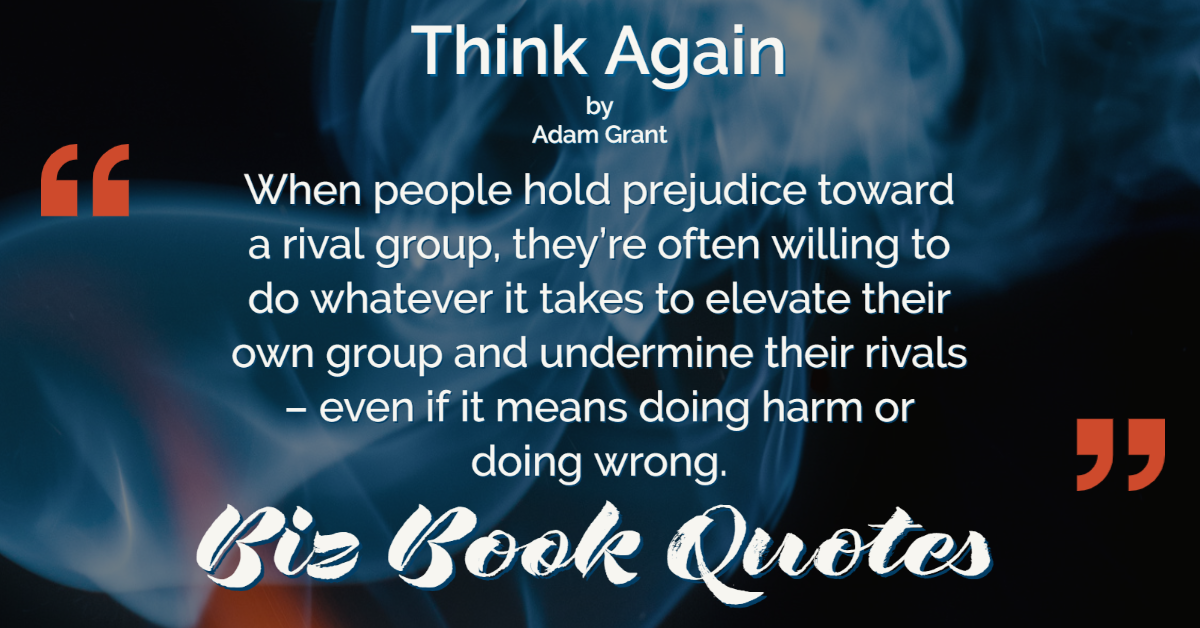
|
Think Again:
When people hold prejudice toward a rival group, they’re often willing to do whatever it takes to elevate their own group and undermine their rivals – even if it means doing harm or doing wrong.
|
124 |
|
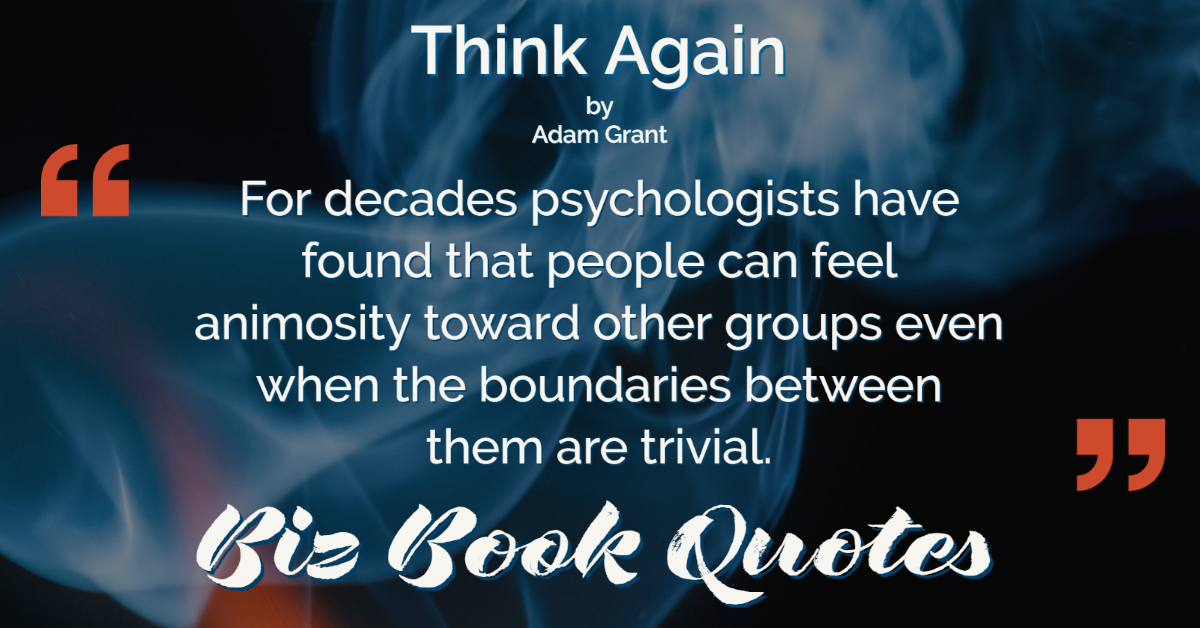
|
Think Again:
For decades psychologists have found that people can feel animosity toward other groups even when the boundaries between them are trivial.
|
125 |
|

|
Think Again:
In every human society, people are motivated to seek belonging and status. Identifying with a group checks both boxes at the same time: we become part of a tribe, and we take pride when our tribe winds.
|
126 |
|
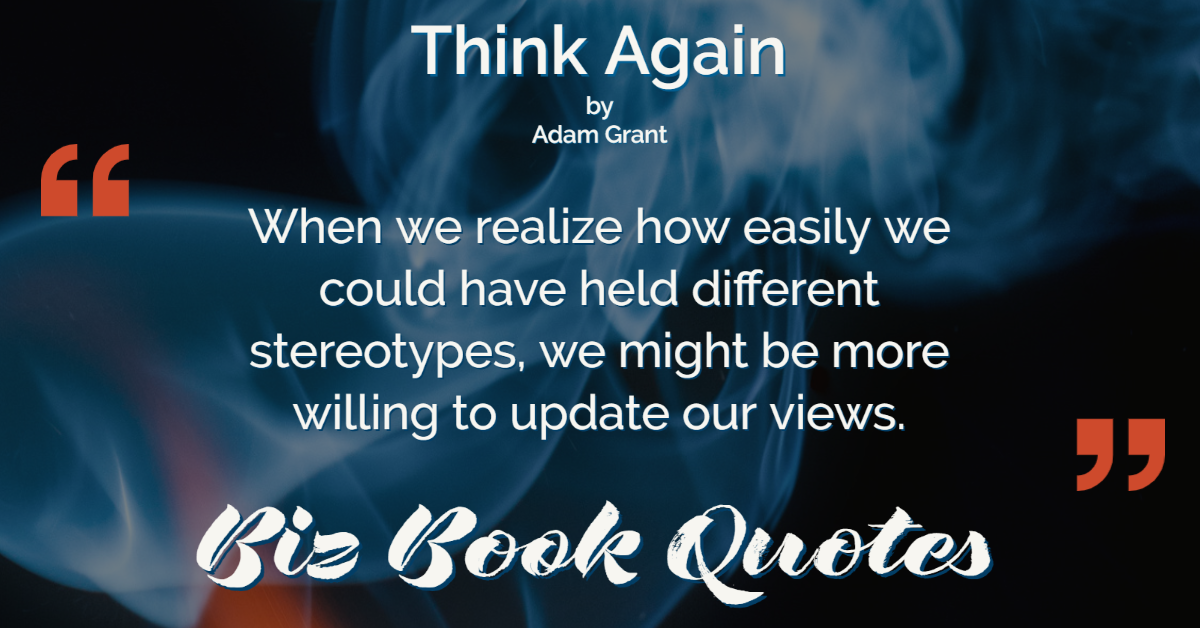
|
Think Again:
When we realize how easily we could have held different stereotypes, we might be more willing to update our views.
|
136 |
|
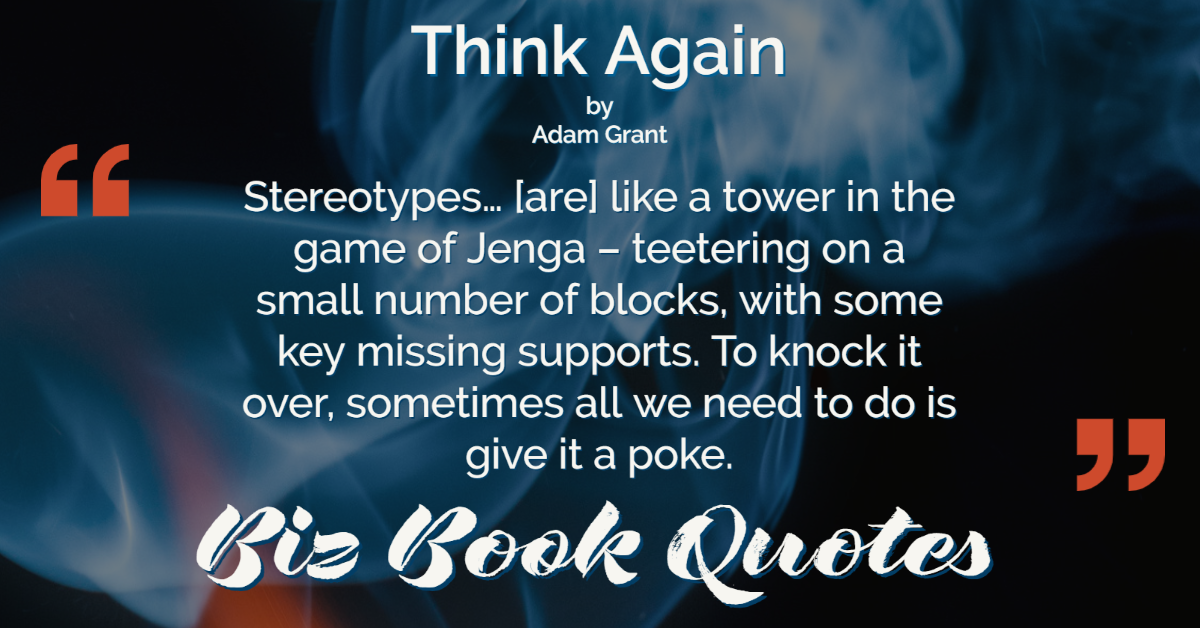
|
Think Again:
Stereotypes… [are] like a tower in the game of Jenga – teetering on a small number of blocks, with some key missing supports. To knock it over, sometimes all we need to do is give it a poke.
|
138 |
|
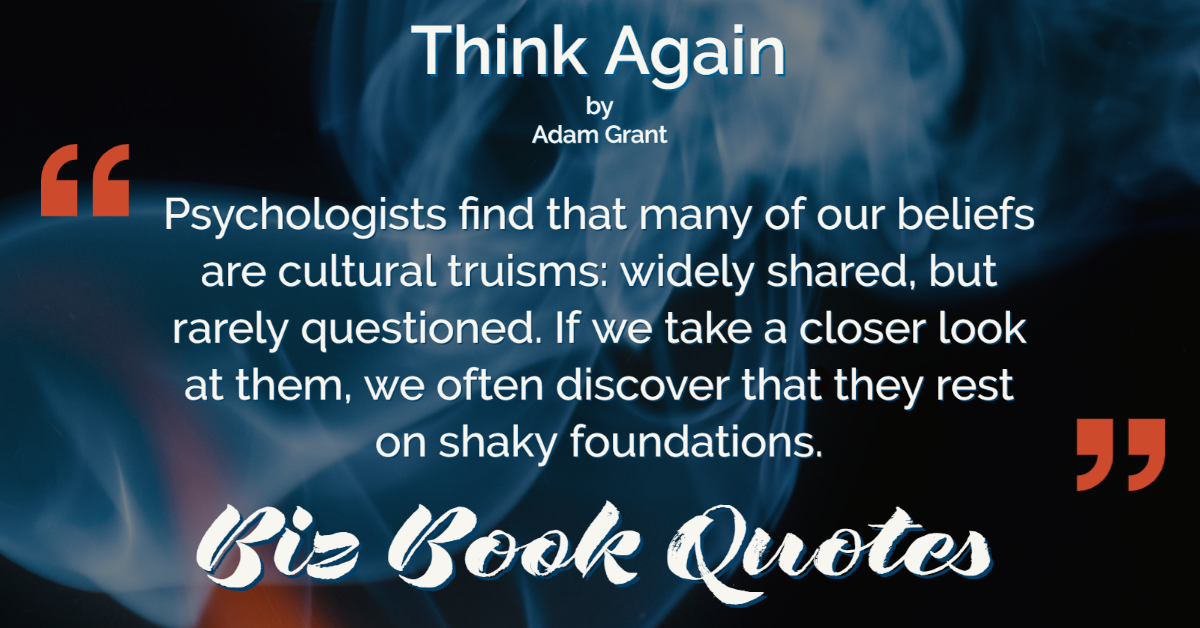
|
Think Again:
Psychologists find that many of our beliefs are cultural truisms: widely shared, but rarely questioned. If we take a closer look at them, we often discover that they rest on shaky foundations.
|
138 |
|
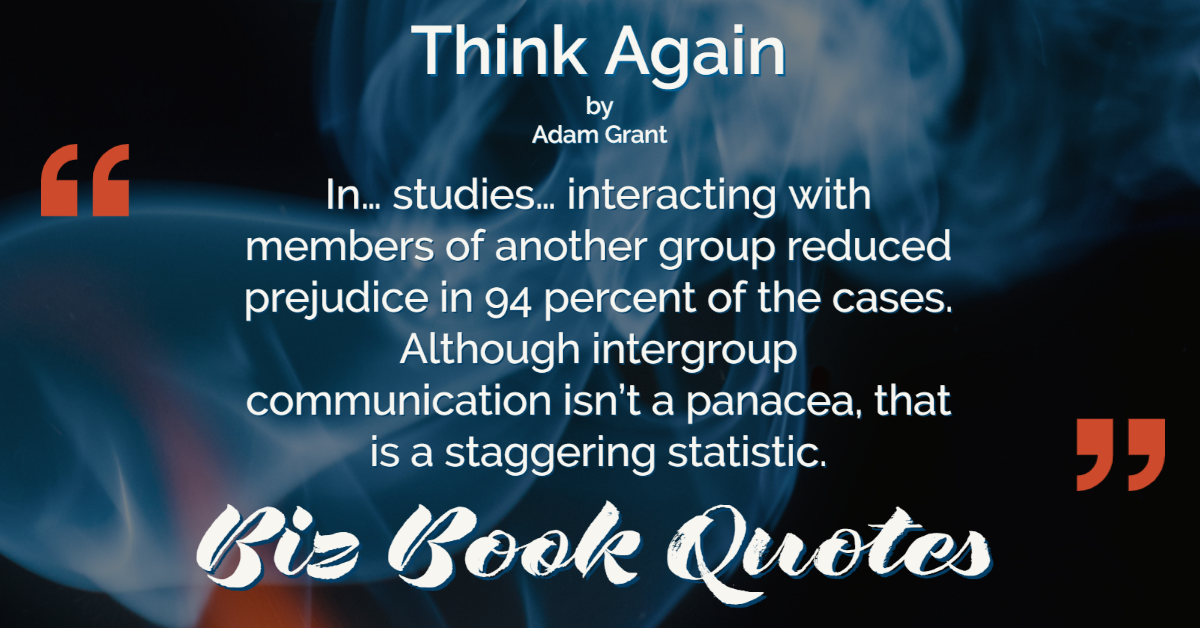
|
Think Again:
In… studies… interacting with members of another group reduced prejudice in 94 percent of the cases. Although intergroup communication isn’t a panacea, that is a staggering statistic.
|
139 |
|
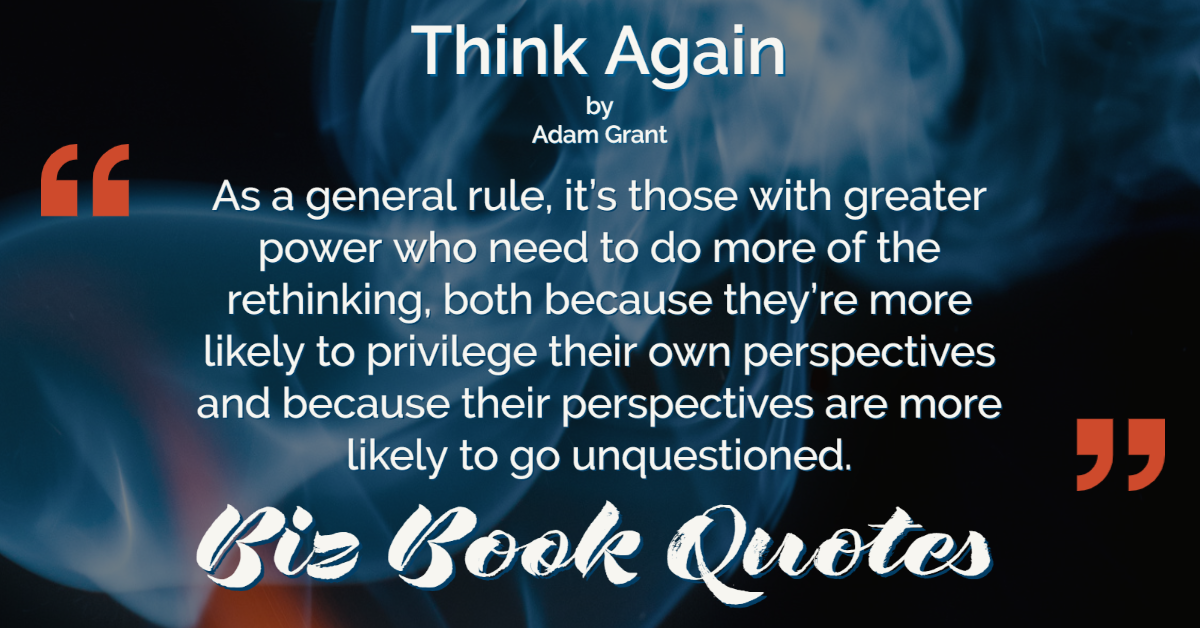
|
Think Again:
As a general rule, it’s those with greater power who need to do more of the rethinking, both because they’re more likely to privilege their own perspectives and because their perspectives are more likely to go unquestioned.
|
140 |











